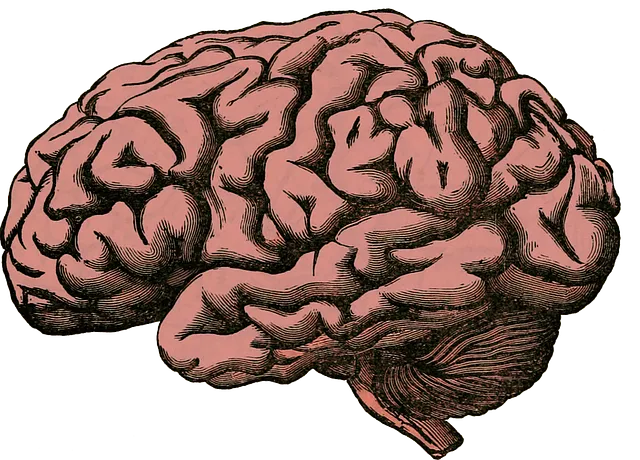Cultural competency in healthcare is essential for providing tailored, quality care to patients from diverse backgrounds. Kaiser Permanente's mental health services in Highlands Ranch prioritize this through comprehensive training programs that address stereotypes and cultural biases, offering coping skills development, mindfulness meditation, and holistic approaches. Their initiatives include community outreach, risk management planning, and integrated communication strategies. Evaluating program outcomes ensures their effectiveness in enhancing patient experiences and mental health awareness among diverse populations.
Healthcare provider cultural competency training is an essential framework for delivering equitable and patient-centered care. In diverse communities, understanding cultural nuances and challenging biases are crucial to improving healthcare outcomes. This article explores these topics through various lenses, including the impact of cultural biases, a case study on Kaiser Permanente’s mental health services in Highlands Ranch, effective training strategies, and measuring program success. By delving into these aspects, we aim to highlight the importance and potential game-changing effects of cultural competency in healthcare.
- Understanding Cultural Competency in Healthcare: A Necessary Framework
- The Impact of Cultural Biases and Stereotypes on Patient Care
- Kaiser Permanente's Approach to Mental Health Services: A Case Study
- Effective Training Strategies for Healthcare Providers in Diverse Communities
- Measuring Success: Evaluating the Effectiveness of Cultural Competency Programs
Understanding Cultural Competency in Healthcare: A Necessary Framework

Cultural competency in healthcare is a foundational framework that ensures providers offer quality care tailored to patients’ diverse cultural backgrounds and needs. It transcends language proficiency, encompassing understanding, appreciation, and respect for different cultures, beliefs, and values. In an area like Highlands Ranch, where Kaiser offers mental health services, this competency becomes especially critical. Effective cultural competence involves not just treating symptoms but addressing the underlying social and cultural determinants of health, enhancing patient engagement and satisfaction.
The importance of cultural competency is highlighted by the Mental Health Policy Analysis and Advocacy initiatives that focus on improving access to care for diverse communities. Coping Skills Development and Mindfulness Meditation are examples of practices that can be integrated into treatment plans, promoting well-being and resilience while respecting individual cultural expressions. By fostering a culturally competent environment, healthcare providers can create safe spaces where patients feel heard, understood, and empowered to take charge of their mental health journeys.
The Impact of Cultural Biases and Stereotypes on Patient Care

In the healthcare sector, cultural biases and stereotypes can significantly impact patient care, often leading to misdiagnoses, inadequate treatment plans, and a breakdown in communication. These biases, whether conscious or unconscious, are rooted in societal perceptions and norms that may not reflect the diverse experiences and needs of patients from various ethnic, racial, and cultural backgrounds. For instance, a healthcare provider’s preconceived notions about a patient’s behavior or health practices due to their ethnicity could result in overlooked symptoms or inappropriate care recommendations. This is particularly relevant when considering mental health services, as cultural nuances play a pivotal role in understanding and addressing patients’ psychological well-being.
Kaiser, known for its comprehensive healthcare offerings, including mental health services in Highlands Ranch, recognizes the importance of addressing these cultural barriers. Their Mental Health Education Programs Design and Community Outreach Program Implementation initiatives aim to foster an environment where providers are equipped to offer culturally competent care. By challenging stereotypes and biases, healthcare professionals can better understand and respond to patients’ unique needs, ensuring more effective stress management strategies and improved overall mental health outcomes.
Kaiser Permanente's Approach to Mental Health Services: A Case Study

Kaiser Permanente, known for its comprehensive healthcare services, has implemented a significant approach to mental health support in Highlands Ranch and beyond. Their strategy focuses on fostering an environment that prioritizes Inner Strength Development among patients, ensuring accessible and culturally competent care. By integrating various communication strategies, Kaiser aims to bridge the gap between healthcare providers and individuals seeking mental wellness solutions.
This initiative extends to comprehensive Risk Management Planning for Mental Health Professionals, equipping staff with the tools to handle diverse patient needs effectively. The case study of Kaiser’s mental health services highlights a commitment to revolutionizing healthcare by addressing psychological well-being as an integral part of overall health management, setting a benchmark for other providers in the industry, especially when it comes to implementing effective communication and risk mitigation techniques.
Effective Training Strategies for Healthcare Providers in Diverse Communities

Effective training strategies for healthcare providers working in diverse communities are crucial to ensuring quality care and improving patient outcomes. One innovative approach gaining traction is incorporating mindfulness meditation techniques into educational curricula. By teaching providers how to manage their own stress and maintain emotional balance, they can better connect with patients from different cultural backgrounds and understand their unique perspectives on health and wellness. This fosters a more inclusive environment where mental wellness is prioritized, reflecting the comprehensive services offered by organizations like Kaiser in Highlands Ranch, such as mental health support and mood management programs.
Additionally, integrating cultural competency training into ongoing professional development programs can significantly enhance providers’ ability to navigate complex interactions with patients from diverse communities. Role-playing scenarios, group discussions, and case studies based on real-life experiences can help healthcare professionals develop essential skills for effective communication and empathetic care. Emphasizing the importance of active listening, cultural humility, and adaptive communication strategies enables providers to address mental health concerns appropriately, catering to individual needs and promoting holistic Mental Wellness in diverse patient populations.
Measuring Success: Evaluating the Effectiveness of Cultural Competency Programs

Evaluating the success of cultural competency training programs is essential to understanding their impact and effectiveness in improving healthcare delivery. Measuring success goes beyond mere participation; it involves assessing changes in provider attitudes, behaviors, and patient outcomes related to cultural competence. One way to gauge this is by conducting pre-and post-training assessments, comparing responses on topics such as cross-cultural communication skills, bias recognition, and patient-centered care approaches.
At Kaiser, for instance, the availability of mental health services in Highlands Ranch has been enhanced through comprehensive training programs that promote self-care routine development for better mental health. These initiatives aim to prevent depression and foster mental health awareness among diverse patient populations. By regularly evaluating program outcomes, Kaiser ensures that their cultural competency efforts remain aligned with evidence-based practices, ultimately leading to improved healthcare experiences for all individuals seeking services.
Healthcare provider cultural competency training is no longer a choice, but an essential tool for delivering equitable and effective patient care. As we’ve seen from both the theoretical discussions and practical case studies, including programs like Kaiser Permanente’s mental health services in Highlands Ranch, training should focus on challenging biases, promoting understanding, and fostering inclusive environments. By implementing robust training strategies tailored to diverse communities, healthcare providers can improve patient outcomes, build stronger relationships, and create a more just healthcare system for all.






